Taking Charge of Your Health: Surviving Without a Doctor's Presence
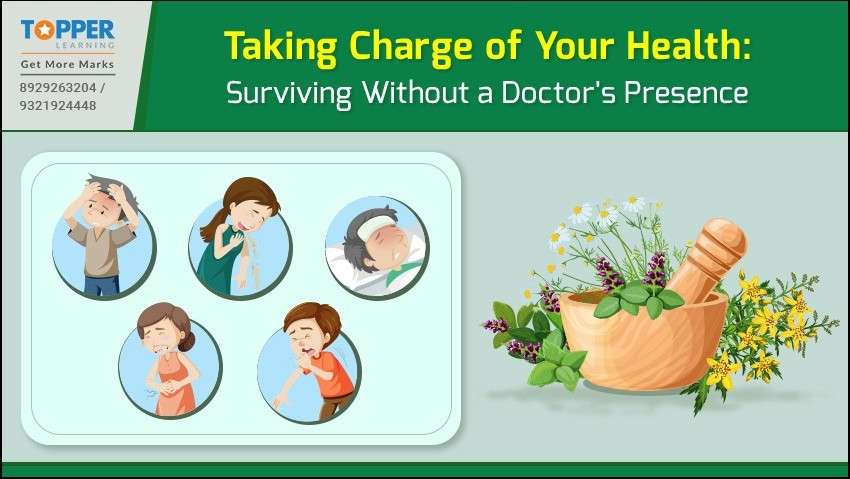
We are used to being able to see a doctor at any time for any reason, no matter how small. However, what if the doctor is not available? The information presented here will familiarise you with common sicknesses and the home remedies to cure them.
By Topperlearning Expert 13th Sep, 2023 | 02:13 pm
ShareSometimes, you feel terrible. Tired, achy, overly sensitive, and you have no energy to do much of anything. It is frustrating when we fall ill when we least expect it, right? Illness can knock on our door anytime. How do you deal with these, especially when medical help is unavailable? Let us get acquainted with some of the most common sicknesses and the different types of home remedies that will help us in curing these sicknesses.
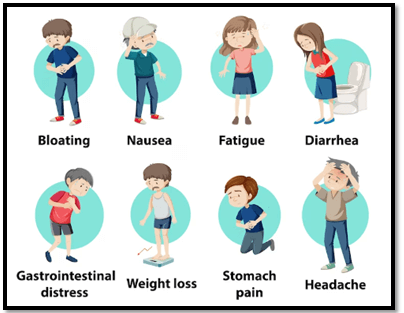
COMMON SICKNESSES
Fever
The average body temperature is between 35.8°C (96.4°F) and 37.5°C (99.5°F) in healthy persons. However, if a person has a temperature higher than 37.5°C (99.5°F), he is supposed to have a fever.
Fever helps our body fight infections by stimulating the immune system. By increasing the body's temperature, a fever makes it harder for the bacteria and viruses that cause infections to survive.
The pattern (rise and fall) of temperature are characteristics of some illnesses:

Treatment
- Never wrap the child in a blanket or any clothing.
- Wipe the body with a cool, wet cloth.
- Drink plenty of liquids with a pinch of salt in it.
- Consult a doctor for a suitable medicine.
Headache
Headache is one of the most frequent complaints. In persons with headaches, it is essential to know the character of headache - tightness, pressure, bursting, throbbing, dull or steady pain.
Types of Headaches

Cough
Cough is produced when the air tubes and lungs are inflamed or infected. Inhaling dust, cigarettes, chemicals, and hot or cold air can also make a person cough. Coughing clears the breathing system and removes phlegm – a thick, stingy mucous and germs in the throat or lungs.
Treatment
- Drink a lot of water to loosen mucus and ease any cough.
- Breathe hot water vapours.
- See a doctor immediately for a severe dry cough that does not let you sleep or a cough with difficult and noisy breathing.
Cold and Flu
Cold and flu are common viral infections that may cause runny nose, cough, sore throat, and sometimes fever or joint pain. If a cold or flu lasts more than a week, or if the person has a fever, coughs up a lot of phlegm, shallow, fast breathing, or chest pain, he could develop bronchitis or pneumonia.
Treatment
- Drink plenty of water and get enough rest.
- Inhale steam as this helps to clear a stuffy nose.
- Drink fruit juices, especially orange juice or lemonade.
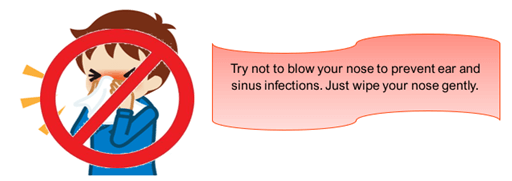
Allergic Reactions
An allergy is a disturbance or reaction that affects only certain persons when things they are sensitive or allergic to things such as pollen, dust, certain medicines, and specific foods, especially peanuts and fish.
Allergic reactions, which can be mild or very serious, include itching rashes, lumpy patches, hives, runny nose and itching or burning eyes, irritation in the throat, difficulty breathing, asthma, allergic shock or even diarrhoea.
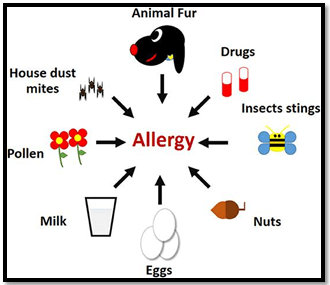
Vomiting
Vomiting often arises due to a problem in the stomach or gut problem, such as an infection, diarrhoea, poisoning from spoiled food, or acute abdomen. Any sickness with high fever or severe pain may cause vomiting, especially malaria, hepatitis, tonsillitis, earache, meningitis, urinary infection, gall bladder pain or migraine headache.
Treatment
- Sip some tea with sugar but no milk, adding lime or ginger.
- Sip a cola drink or ginger ale or herbal tea, like camomile.
- Have small, frequent sips of ORS, tea, or rehydration drink for dehydration.
- If vomiting does not stop soon, see a doctor immediately.
Dehydration
Dehydration occurs when the body loses more liquid than it takes in. This can happen with severe diarrhoea, especially when it is accompanied by vomiting, fever, or serious illness where the person is too sick to take enough food or liquid.Dehydration is often characterised by thirst, little or no urine, lack of sweat, rapid breathing, dry mouth, and sunken, tearless eyes.
Treatment
- Drink a lot of liquids such as thin cereal porridge or gruel, teas, soups, or even plain water. Oral Rehydration Solution is the best drink.
- As soon as the sick child (or adult) accepts food, give frequent feedings of foods he likes and accepts.
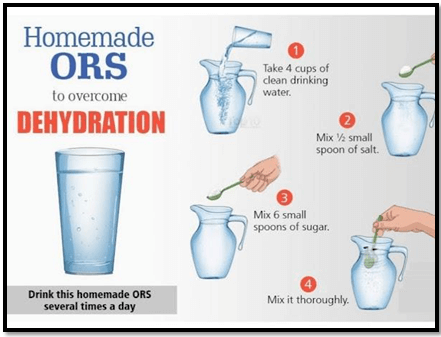
Diarrhoea and Dysentery
When a person has loose or watery stools, he has diarrhoea. He has dysentery if mucus and blood can be seen in the stools. Diarrhoea is spread through contaminated water or food. It can be caused by poor nutrition, worm infections, virus infection or 'intestinal flu', gut infections, overeating unripe fruit or heavy, greasy foods, side effects produced by certain medicines, such as ampicillin or tetracycline and inability to digest milk.
Treatment
- Drink a lot of liquids. Drink Rehydration Drink in case of severe diarrhoea or signs of dehydration.
- Give plenty of energy foods and body-building foods (proteins) to an underweight child with diarrhoea.

HOME REMEDIES FOR COMMON SICKNESSES
Cold and Cough
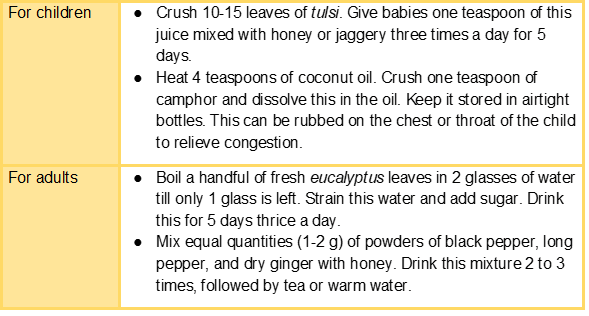
Sore throat
- Crush fresh ginger to get one teaspoonful of the juice and mix this with an equal amount of honey. Take this every 3 hours.
- Boil some water. Add the juice of one lime and sugar or salt. Consume this hot once every 3 to 4 hours.
- Boil a glass of milk with a pinch of turmeric and pepper powder and drink it hot at bedtime.
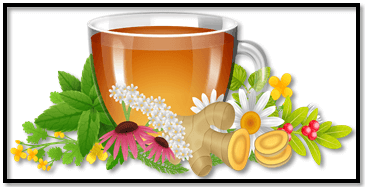
Diarrhoea
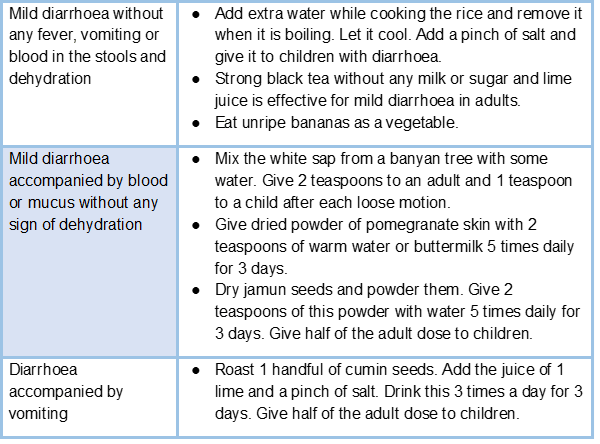
Fresh cuts and wounds
- Wash the cut well with clean water. Wash a piece of fresh ginger and grind it, apply on the cut, and bandage it with a clean cloth. Do not remove the bandage till the cut has completely healed, and the ginger comes off on its own. Keep the bandage completely dry. If you get Dettol, mix it with water and use this solution for cleaning.
- Wash the affected area with clean, warm water and apply turmeric powder over the area. Clean the wound regularly and apply turmeric powder.
Chickenpox
- Spread neem leaves on the bed of the sick person.
- Boil neem leaves in water and bathe the sick person with this water daily.
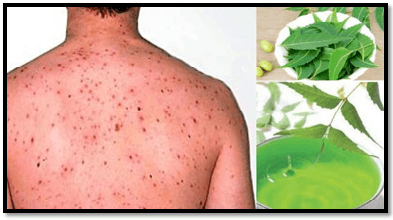
Toothache
- Crush 1 or 2 cloves and apply it to the affected tooth. Let the juice remain in the mouth for some time. Soak a piece of cotton in clove oil and apply it to the affected tooth.
- Gargle with lukewarm water with salt as and when required.
ROLE OF MEDICINAL PLANTS IN HOME CURES
Medicinal plants have been a part of our lives since our existence and have been used for various medicinal purposes since ancient times. Medicinal plants and herbs like turmeric, ginger, basil leaves, mint and cinnamon are commonly used in Indian dishes and offer several health benefits.
Preparations from Some Medicinal Plants
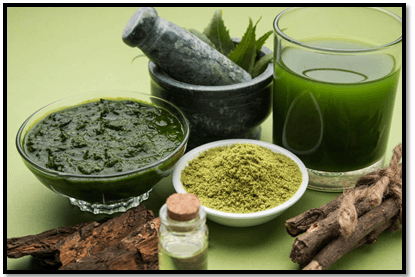
Kalka (chatny) - Paste for internal use
The paste formed by grinding the herb on the grinding stone (sila batta) is known as kalka Kalpana or herbal paste.

Lepa - Paste for external application
A lepa is prepared by crushing the part of the plant without adding any water, along with oil, water, ghee, curd, milk, etc.
- Apply the lepa against the direction of the hair.
- Cover the affected body part with lepa up to a thickness of 1cm once a day only.
- Remove it from the skin when it is dry.
Decoction
Decoction is a method of extraction by boiling herbal or plant material to dissolve the chemicals of the material.
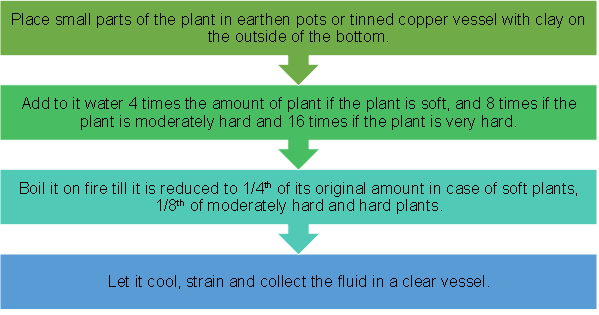
Powder
- Use the dried part of the plant for grinding on a slab or with a pestle and mortar.
- Sieve the powder through a clean cotton cloth.
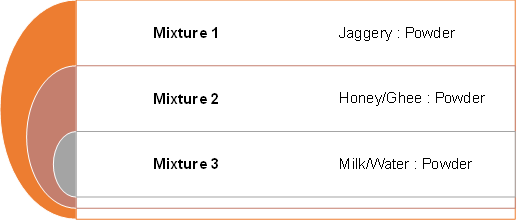
Ointment
- Warm oil or ghee initially, then add resin before you remove from heat and strain through a clean cotton cloth.
- Add finely powdered plant and mix well to a homogenous, non-gritty consistency.
Common Home Cures
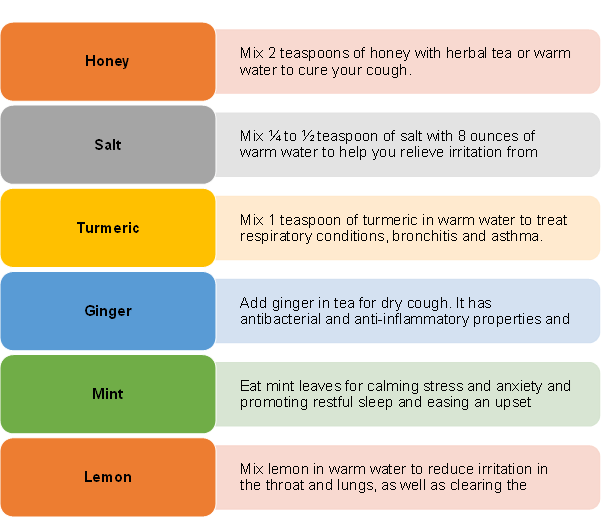
CONCLUSION
In view of NEP guidelines, Topperlearning, through its online learning website skill-based material, wants the kids to be aware, plan and prepare for the possibility that they might need to manage their routine medical care and minor injuries if medical care is unavailable.
We want them to focus on health prevention by staying fit, learning first aid, and having a well-stocked first aid kit and medicines. The kids should know life-saving techniques such as CPR (Cardiopulmonary resuscitation). Click on CPR to watch the video.
To date, medicinal plants are excellent home cures for treating some of the most common sicknesses. It is vital to ensure the correct plant and dosage, as some medicinal herbs are poisonous if taken wrongly. If in doubt, it is best to consult a traditional practitioner or any person in the community who is familiar with herbal plants. Remember, home cures are effective only in mild diseases. Always treat a severe illness with modern medicines.
FAQ's
Q 1. Can I manage my health without seeing a doctor regularly?
Ans: You can treat some common sicknesses through home cures. It is best to see your doctor to treat a severe illness with modern medicines.
Q 2. What are some essential self-care practices for maintaining good health?
Ans: Small acts of self-care which can help you maintain good health are listed below –
- Doing regular exercise
- Eating healthy and regular meals
- Staying hydrated
- Trying a relaxation activity
- Focussing on positivity
- Staying connected
Q 3. How can I monitor my health at home without medical supervision?
Ans: You can monitor your health at home by –
- Checking your blood pressure
- Monitoring your oxygen levels
- Checking your weight and body mass index (BMI)
- Keeping track of how often you exercise
- Self-tracking your mental health and wellness
Q 4. What should I include in a home first-aid kit for minor injuries or illnesses?
Ans: A basic first aid kit for minor injuries or illnesses may include the following items –
- Plasters of different sizes and shapes
- Small, medium and large sterile gauze dressings
- Triangular bandages
- Crêpe rolled bandages
- Safety pins
- Disposable sterile gloves
- Tweezers and scissors
- Alcohol-free cleansing wipes
- Sticky tape
- Thermometer, preferably digital
- Skin rash creams, such as hydrocortisone or calendula
- Cream or spray to relieve insect bites and stings
- Antiseptic cream
- Painkillers such as paracetamol, aspirin or ibuprofen
- Distilled water for cleaning wounds
- Eyewash and eye bath
Q 5. How can I stay mentally healthy without professional help?
Ans: You can stay mentally healthy without professional help by practising the following –
- Value yourself
- Take care of your body
- Surround yourself with good people
- Volunteer your time and energy to help someone else
- Learn how to deal with stress
- Try meditating
- Stay positive
- Break up the monotony and plan something new and interesting
- Avoid alcohol and other drugs
Q 6. What is CBSE Skill Education, and what are the books and support materials available for it?
Ans: As per NEP 2020, the Central Board of Secondary Education (CBSE) introduced skill-based education in schools. The aim is to equip students with practical skills to help them in their careers.CBSE has published a range of books and support materials for this purpose, covering various subjects such as Retail, Information Technology, Beauty and Wellness, and more. Topperlearning strives to raiseawareness about the significance of such in-demand skills and topics throughthis blog series.
Important Resources
- Education Franchisee opportunity
- NCERT Solution
- CBSE Class 9 Mathematics
- NCERT Solutions for class 10 Science
- Sample Papers
- CBSE Class 9 Science
- NCERT Solutions for class 10 Maths
- Revision Notes
- CBSE Class 10 Hindi
- CBSE Class 10 English
- CBSE Class 10 English
- CBSE Class 10 Social Studies
- CBSE Class 10 Science
- CBSE Class 10 Mathematics
- Career In Science After 10
- Career In Commerce After 10
- Career In Humanities/Arts After 10
- NCERT Solutions for Class 10
- NCERT Solutions for Class 11
- Business Studies Class 12 CBSE project





